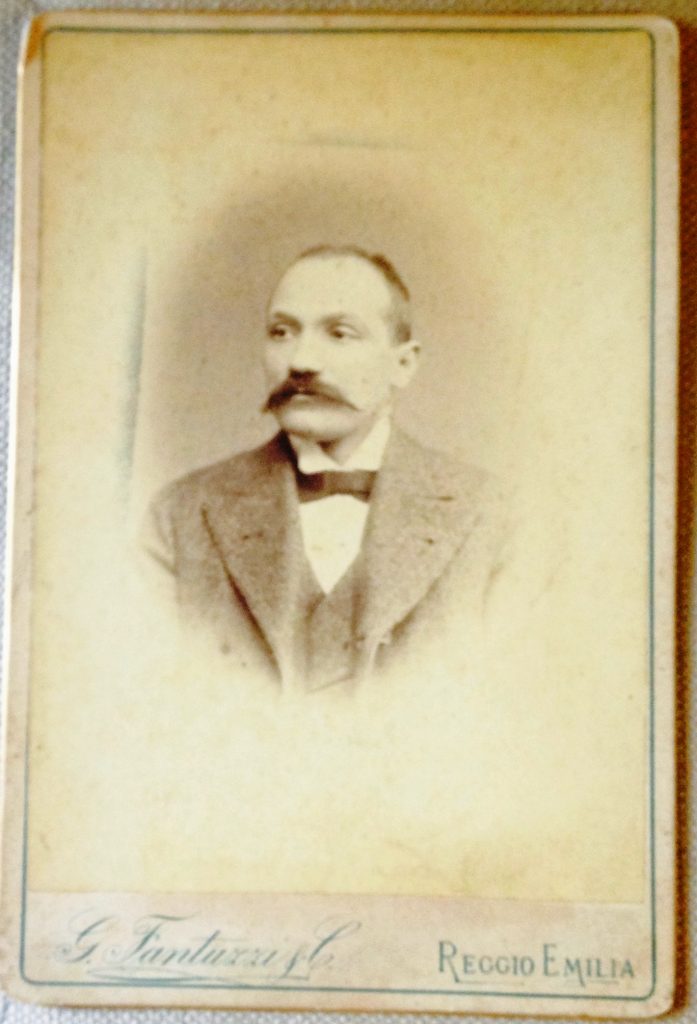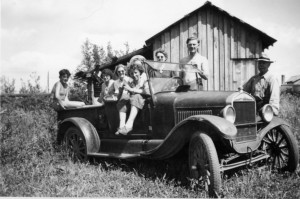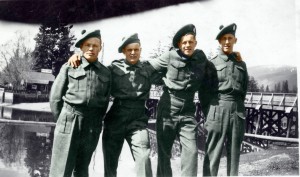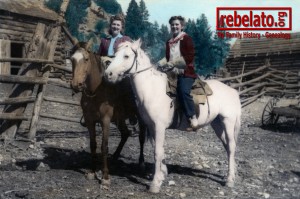Where Do I find the Meaning of Surnames?
The Meaning of Surnames – Probably, at some point of your life, you will feel curious to know about your heritage, and this question, might imply many other questions at the time like; Who your ancestors were? What have they done with their lives? Where did they originally came from? How is it that your family ended by living in a certain place? What is the country of origin of your surname? What does your surname means?
Without disregarding the other questions, the meaning of surnames is a very interesting question itself, and of course, is a complex one, and related to many issues.
Historically speaking the need of governments to collect taxes, has a lot to do with the need of correctly identifying people and thus of the need of generalizing the use of surnames. Surnames were adopted between the 11th and the 16th century in England; the 16th and the 19th century in Wales and the 11th and the 19th century in Scotland.
If you intend to introduce yourself to the world of surname meaning search, you shouldn´t disregard that the meaning of most surnames in use nowadays. Either relate to a person name -normally a male ancestor- (patronymic surnames), a place name (topographical surnames), a physical characteristic of an ancestor (descriptive surnames), or to an activity performed by an ancestor (occupational surnames).
PATRONYMIC SURNAMES
“Patronymic surnames” are surnames derived from names.
- Shouldn´t be confused with patronymics still in use in Russia and Slavs countries. Russian patronymics look like surnames and are normally used between a name and a surname. For example if someone is called Anna Petrovna Milhanovich, “Petrovna” means daughter of Peter, and is her “patronymic” while Milhanovich is her surname. In this particular case, Milhanovich happens to be a patronymic surname, as the finishing “vich” does also mean “son of”. So in this example, our Anna is the daughter of Peter, but probably one of her ancestors on her father branch was called Milhano. If your surname has a Slav origin, there is a big chance you have a patronymic surname.
- There are a lot of examples of patronymic surnames with other origins. For example, in English surnames, the end “son” is evidence of a patronymic surname (Anderson, Johnson), while for Italian patronymic surnames the current termination is “ini” (Giacomini, Paolini). In French we can see the preposition “of” attached to the name of the father (Desimone, Dejean, “de” meaning “of”). In German language the suffixes “sohn” and “son” are employed, from which are derived the Danish “ sen” (Andersen, Nielsen). In the Celtic language the prefix “Mac” –also seen as Mc- does also mean “son” and evidences the existence of a patronymic surname (MacDonald or McDonald). In Ireland, this prefix can also be transformed in Mag or M’. However, in Irish surnames, is more common the use of the prefix “O” (O’Donnell). In Semitic, Arab and Hebrew languages, we currently see the prefix “ben” (son) in patronymic surnames (Mohamed ben Yusef means “Mohamed son of Yusef”).
TOPOGRAPHICAL SURNAMES
- These surnames take their name from a town, region, district or place where our ancestor lived or owned land. Many are preceded by the preposition “of”, or “of the” (Brook, Ribera, De la Vega).
OCCUPATIONAL SURNAMES
- The work serves as a means of identification, and centuries ago it was usual to make reference to people by their professions: Warrior or Labrador are some examples.
DESCRIPTIVE SURNAMES
- If your surname is White, or Moreno, your ancestors might have had clear or dark skin or hair. On many occasions the last name used corresponds to a physical characteristic and/or a nickname. Over the years, those nicknames might have tended to be inherited and thus could have been the origin for certain surnames.
Surnames origin is influenced by the ancestor’s social class and the culture that they lived in. Those of higher social status used to take surnames that are uncommon today while people of lower social status were keener on taking the most common surnames known today.
A surname is usually passed down from the male ancestors, but some countries like Brazil have different regulations. So if I were a Brazilian descendant from Portuguese emigrants for example, I might find a gap when trying to find my family tree, because beginning by myself, my surname would come from my mother´s ascendants but going up I would find at some point that surnames would come from the male branch. In some other cases the surname could have been passed down from the female ancestors due to extenuating circumstances i.e. (illegitimacy, posthumous birth, inheritance etc.). Some cultures also use a combination of both the mother and father’s surnames (Uruguay is an example in South America of this tradition).
When researching about the meaning of surnames one thing you should be aware of is that the spelling or the written version of a surname can change over the years, so there could be a list of similar surnames nowadays working as different surnames, that might derivate from an unique surname. So if you do not find right away the meaning of your surname, a good tip is to try checking similar surnames to get a clue. I have a personal story about this with my second surname: Sibils. In Uruguay the country where I was born, we use by law two surnames: first surname is our father´s first surname, and second surname, our mother´s first surname (so everything comes from male branch). We have always been aware that Sibils comes from Cataluña in Spain, but until we were contacted by a relative from Spain looking forward to finding relatives in South America, we were not aware of the fact that the surname Cibils, is actually the same surname. In fact, Cibils was originally written with cedilla, so over the years, some people were registered as Sibils and not as “Çibils”.
Another thing to consider when trying to find the meaning of surnames is that your surname might also have suffered changes over the generations for religious reasons. For example, many Jewish people have for surnames names of things, like “Castle” or “Woods”. The reason for this is that their ancestors might have changed their original surname for a new one, to avoid being identified as Jewish at the times of the Catholic Inquisition.
Nowadays, there is a lot of information available at the web, about the meaning and origin of surnames. Using an app or any online resource is a quick and efficient way to do research. At ancestry.com tools are available to make this search easier and at the same time interesting to you. The more information you have in advance on surname meanings, the more information you will get from the web.
By, Carmen Vazquez Sibils










